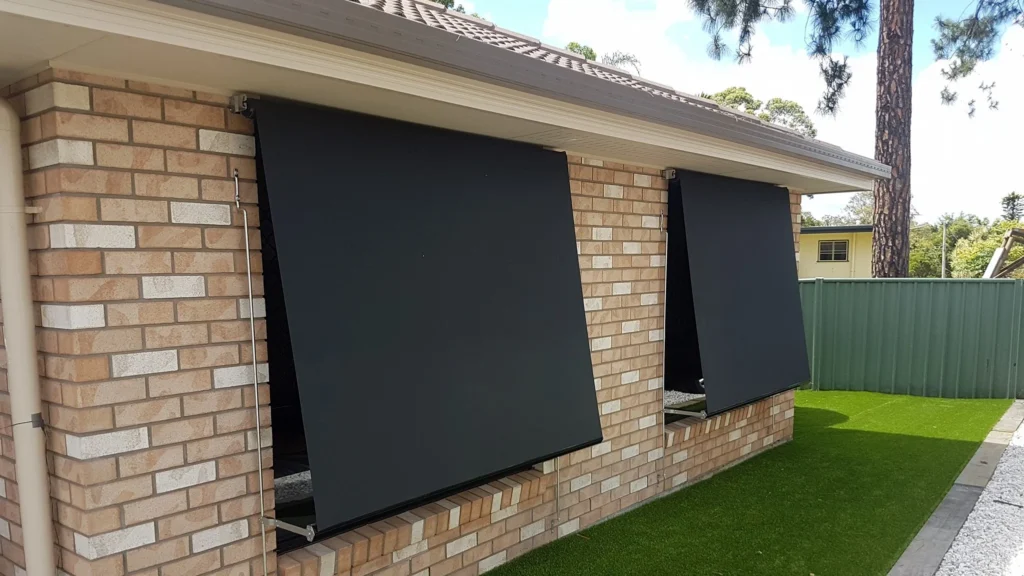
Comparing Auto Awning Materials: Fabric, Aluminum, and Vinyl
Introduction
Auto awnings have become a popular addition to homes and businesses, providing shade, comfort, and energy savings. When it comes to choosing the right material for your auto awning, you’ll have several options to consider. In this blog, we’ll explore three common choices: fabric, aluminum, and vinyl. We’ll delve into their unique characteristics, advantages, and disadvantages to help you make an informed decision for your specific needs.
- Fabric Awnings
Fabric awnings are a classic choice, known for their versatility and aesthetic appeal. They are made from a variety of materials, including canvas, acrylic, and polyester. Here’s a closer look at their features:
Advantages: a. Aesthetic Appeal: Fabric awnings offer a wide range of colors, patterns, and designs, making it easy to match your awning to your home’s style. b. Breathability: Fabric allows for air circulation, reducing heat buildup underneath the awning. c. Lightweight: Fabric awnings are relatively lightweight, which simplifies installation and maintenance. d. UV Protection: Many fabric awnings are treated to block harmful UV rays, providing protection for you and your belongings.
Disadvantages: a. Maintenance: Fabric awnings require regular cleaning and occasional waterproofing to prevent mold, mildew, and fading. b. Lifespan: While durable, fabric awnings may have a shorter lifespan compared to some other materials. c. Less Durability: Fabric awnings are more susceptible to damage from harsh weather conditions, such as strong winds and hail.
- Aluminum Awnings
Aluminum awnings are known for their sturdiness and durability. They are typically made from aluminum panels and come in a variety of styles. Here’s what you need to know about them:
Advantages: a. Durability: Aluminum awnings are highly resistant to harsh weather, including rain, snow, and wind. b. Low Maintenance: They require minimal maintenance and are easy to clean. c. Longevity: Aluminum awnings have a longer lifespan compared to fabric options. d. Energy Efficiency: They can help reduce energy consumption by shading windows and preventing heat buildup.
Disadvantages: a. Limited Design Options: Aluminum awnings may not offer as many design choices as fabric options. b. Weight: They can be heavier than fabric awnings, which may require more substantial support structures. c. Noise: Rainfall on aluminum awnings can be noisy, which may be bothersome for some homeowners.
- Vinyl Awnings
Vinyl awnings are known for their affordability and ease of maintenance. They are made from vinyl-coated polyester fabric. Let’s explore their pros and cons:
Advantages: a. Cost-Effective: Vinyl awnings are often more budget-friendly than other materials. b. Low Maintenance: They are easy to clean and do not require regular waterproofing. c. UV Resistance: Vinyl awnings offer good UV protection, helping to keep your space cooler. d. Weather Resistance: They can withstand various weather conditions, including rain and snow.
Disadvantages: a. Limited Colors: Vinyl awnings may have fewer color options compared to fabric choices. b. Less Breathable: Vinyl is less breathable than fabric, which may result in heat buildup. c. Lifespan: While durable, vinyl awnings may not last as long as aluminum options.
Choosing the Right Material for Your Auto Awning
When selecting the material for your auto awning, consider your specific needs, budget, and aesthetic preferences. Here are some key factors to help you make the right choice:
- Climate: If you live in an area with extreme weather conditions, aluminum awnings may be the most suitable option.
- Aesthetics: Fabric awnings offer the most design flexibility, allowing you to match your awning to your home’s style.
- Maintenance: If you prefer a low-maintenance option, consider vinyl or aluminum awnings.
- Budget: Your budget will play a significant role in your decision-making process, as some materials are more affordable than others.
Conclusion
In the world of auto awnings, choosing the right material is essential for comfort, aesthetics, and longevity. Fabric, aluminum, and vinyl all have their unique advantages and disadvantages, so it’s important to evaluate your specific needs and preferences before making a decision. Whether you prioritize design, durability, or affordability, there’s an awning material that’s just right for you.
